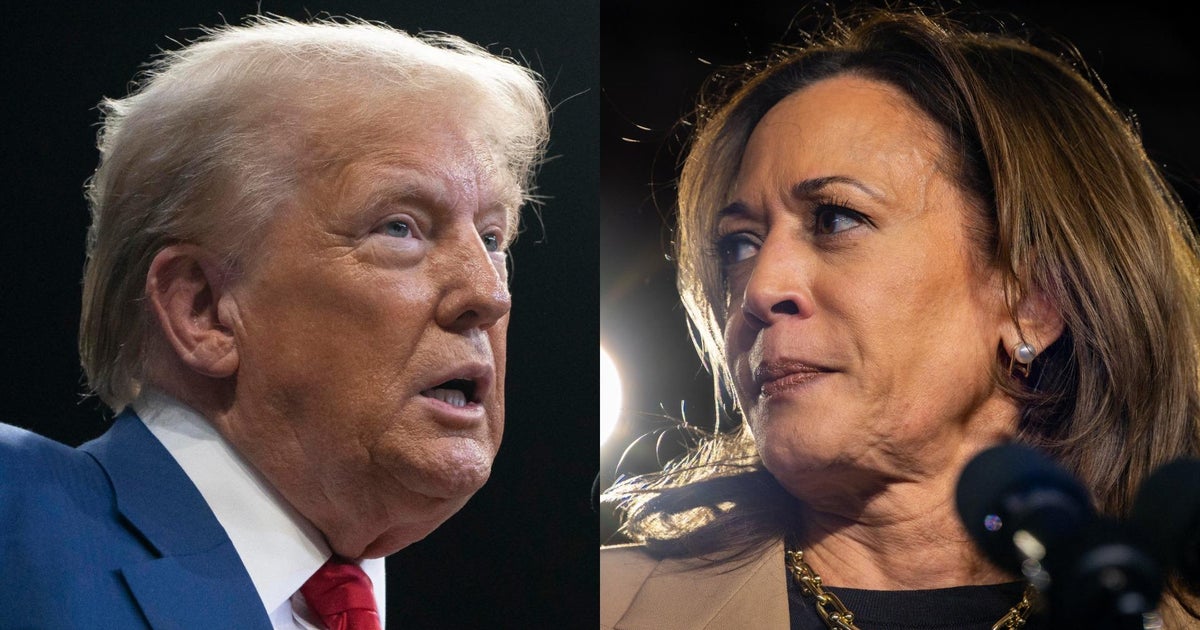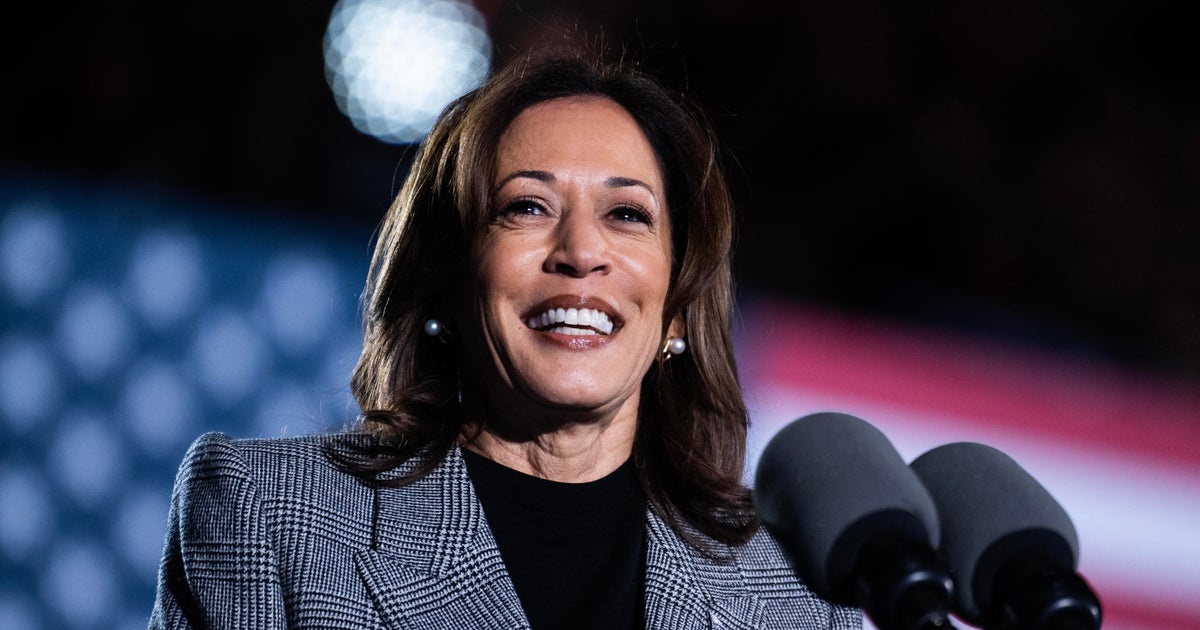Peter Navarro convicted of contempt of Congress for defying Jan. 6 committee subpoena
Washington — Former President Donald Trump's top White House trade adviser Peter Navarro was found guilty Thursday of two counts of criminal contempt of Congress for defying a subpoena from the House committee investigating the Jan. 6 attack on the Capitol.
A jury in Washington, D.C., convicted the former Trump administration official following a trial that lasted just over a day. Navarro's defense team called no witnesses.
Sentencing is set for January, and Navarro faces a maximum of one year in prison and a fine of $100,000 for each count. Speaking with reporters outside the court, Navarro and his attorneys indicated they would appeal the verdict, calling the prosecution "a landmark case" about separation of powers.
Prosecutors alleged Navarro "acted like he was above the law" when he defied the request from the now-expired House select committee for documents and testimony in February 2022. At the time, congressional investigators were interested in Navarro's efforts to formulate a plan to delay the certification of the 2020 presidential election results.
"Congress believed that Mr. Navarro had information about what happened on Jan. 6, or more specifically about why it happened," government attorney John Crabb said in opening arguments on Wednesday, telling the jury a subpoena is not an "invitation," but a "requirement."
What happened at Navarro's brief trial
Nearly three years after the 2020 presidential election and months after the Jan. 6 committee was dissolved, the day-long federal trial resuscitated some of the panel's procedures and goals as three former staffers took the stand for the government.
"Talking to Mr. Navarro was important," said Daniel George, the former senior investigative counsel for the committee and current federal prosecutor in Connecticut. "We needed to understand if there was any truth" to the claims of voter fraud that allies of the former president — including Navarro — used in their efforts to hinder the election results.
George explained under direct examination that he first communicated with Navarro via email on Feb. 9, 2022, about serving the congressional subpoena. When he accepted the subpoena, according to George's testimony, Navarro responded with "executive privilege," implying he would not comply with the demands.
"He was very good about corresponding" before the service of the subpoena, George testified. The Feb. 23, 2022, deadline for Navarro to turn over documents and the March 2, 2022, deposition date both passed, George said, and Navarro had not complied after reminders from the committee and correspondence about executive privilege. "My hands are tied," Navarro wrote at one point, according to evidence at trial, and directed the committee to communicate with Trump's attorneys.
George told the jury that although the committee had communicated with members of Trump's legal team about claims of executive privilege over other individuals, they had not discussed Navarro's subpoena.
Asked by prosecutors if the committee staff had received any communication from the former president's counsel related to Navarro's subpoena, George replied, "None."
Mark Harris, a committee staffer who was scheduled to conduct Navarro's deposition in March 2022, said his team documented Navarro's absence from the interview room for the record. And David Buckley, a former congressional investigator and retired Department of Defense official, told the jury about the legal framework that established the committee and its authority to compel compliance with subpoenas.
"Peter Navarro made a choice," prosecutor Elizabeth Aloi said in her closing statement on Thursday. "He chose not to comply with a congressional subpoena."
Jurors saw a copy of the subpoena, its cover letter and numerous emails between Navarro and committee staff during the period in question.
Navarro's defense attorney, Stanely Woodward, implied in cross-examination that the committee had dropped the ball in not working to communicate with Trump's legal team about the executive privilege issue after Navarro suggested they do so.
A fight over executive privilege
Ahead of this week's trial, Navarro's defense team also argued they should be permitted to tell the jury that Trump told Navarro to invoke executive privilege protections against the subpoena. But prosecutors argued — and Judge Amit Mehta ultimately agreed — that there was no evidence that Trump formally worked to shield Navarro from the committee.
The ruling hamstrung Navarro's defense by limiting what they could tell the jury at trial.
Navarro did not take the stand in his own defense, but in an evidentiary hearing on the executive privilege matter last week, he told Mehta it was "clear" Trump invoked the protection in a 2022 phone call with Navarro. The judge, however, was unconvinced.
Prosecutors told the jury Thursday that Navarro's potential belief that the former president asserted the privilege "does not matter" and Mehta instructed them that such a belief cannot be a defense for the alleged crimes.
Outside the presence of the jury, Navarro's defense team took issue with prosecutors' references to the Jan. 6 Capitol attack, telling the judge the case "is not about the riot at the Capitol and to repeatedly attempt to link Dr. Navarro to why that happened is inappropriate."
The government attorneys argued, however, that the Jan. 6 committee's authority and purpose was born from the events that day.
"In the aftermath of that attack, Congress tried to get to the bottom of what happened," Aloi said Thursday. "The defendant, he had knowledge" of a plan to delay the certification of the electoral college votes in Congress.
"This case is not about what happened on Jan. 6. What happened on Jan. 6 was abhorrent," Woodward, Navarro's attorney, said in his closing remarks Thursday. "Did Dr. Navarro have anything to do with the violence that day? He did not."
Woodward argued the Justice Department had not effectively proved that Navarro willfully defied the subpoena. "Where was Dr. Navarro on March 2, 2022?" he asked, "We don't know. The government provided no evidence about that. Do we know that his failure to comply beyond a reasonable doubt was not the result of inadvertence, accident, or mistake?"
Prosecutors fired back and argued that the jurors heard testimony about where Navarro wasn't that day: testifying before the committee.
After the verdict was read on Thursday, Woodward said he would seek a mistrial, saying the jurors went for a walk outside before coming to their decision and could have seen protesters gathered outside the courthouse. Mehta invited Woodward to file a brief on the matter, and was later spotted evaluating the courthouse exit with security staff.
"Before today, no full-term senior presidential advisor had ever been convicted of contempt of Congress after declining, on the basis of Executive Privilege, to comply with a Congressional subpoena," Navarro attorney John Rowley said in a statement Thursday evening. "This case involves the Separation of Powers between the Executive and Legislative branches as they apply to a President's ability to maintain confidential communications with his most senior advisors."
Navarro is the second Trump ally to be convicted for defying a subpoena from the now-defunct committee. Last year, Steve Bannon was found guilty of the same two counts after he did not comply with a subpoena and he was sentenced to four months in prison. Bannon's team appealed the conviction and a federal judge suspended the sentence until the matter is fully litigated.
Trump aides Mark Meadows and Dan Scavino were referred to the Justice Department for prosecution by Congress for similar alleged conduct, but prosecutors ultimately opted not to charge the pair.




